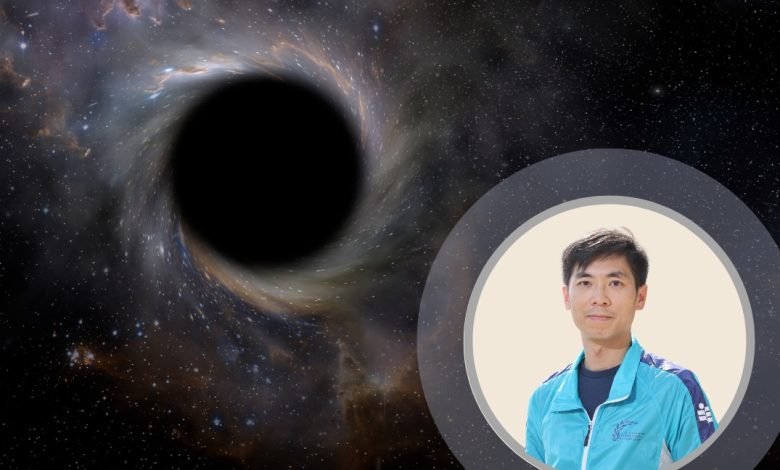EdUHK Research Team Proves Existence of Dark Matter Surrounding Black Holes

Dark matter has always been an intriguing topic in astronomy and astrophysics. However, its nature remains one of mankind’s greatest mysteries. All we know is that it has a strong influence in the expansion of our universe and determines the formation of galaxies.
As its name suggests, dark matter does not emit or reflect light, nor does it interact with electromagnetic force, making it exceptionally difficult to detect. Nevertheless, a research team from The Education University of Hong Kong (EdUHK) has proven that there is a substantial amount of dark matter surrounding black holes. The study was supported by the Research Grants Council, and its results are published in the peer-reviewed scientific journal The Astrophysical Journal Letters.
The team selected two nearby black holes (A0620-00 and XTE J1118+480) as research subjects, with both considered as binary systems. That is, each of the black holes has a companion star orbiting it. Based on the orbits of the companion stars, observations indicate that their rates of orbital decay are approximately one millisecond (1ms) per year, which is about 50 times greater than the theoretical estimation of about 0.02ms annually.
To examine whether dark matter exists around black holes, the EdUHK team applied the ‘dark matter dynamical friction model’ – a theory widely held in academia – to the two chosen binary systems, through computer simulations. The team found that the fast orbital decay of the companion stars precisely matches the data observed.
Notably, this is indirect evidence that dark matter around black holes can generate significant dynamical friction, slowing down the orbital speed of the companion stars.
The findings, which verified a theoretical hypothesis formulated in the late 20th century, represent a breakthrough in dark matter research. According to the hypothesis, dark matter close enough to black holes would be swallowed, leaving the remnants to be redistributed. The process ends up forming a ‘density spike’ around the black holes.
Dr Chan Man-ho, Associate Professor in the Department of Science and Environmental Studies and Principal Investigator, explained that such a high density of dark matter would create dynamical friction to the companion star, in a way similar to drag force.
“This is the first-ever study to apply the ‘dynamical friction model’ in an effort to validate and prove the existence of dark matter surrounding black holes,” he said. “The study provides an important new direction for future dark matter research.”
Dr Chan further mentioned that previous studies, which relied mostly on gamma rays and gravitational wave detection to examine the presence of dark matter, depended on the occurrence of rare events, such as a merger of two black holes. According to him, that might require a prolonged waiting time for astronomers.
The novel approach adopted by EdUHK team, however, will no longer be confined by these limitations. He added, “In the Milky Way Galaxy alone, there are at least 18 binary systems akin to our research subjects, which can provide rich information to help unravel the mystery of dark matter.”
The original publication can be found in The Astrophysical Journal Letters: https://iopscience.iop.org/article/10.3847/2041-8213/acaafa




